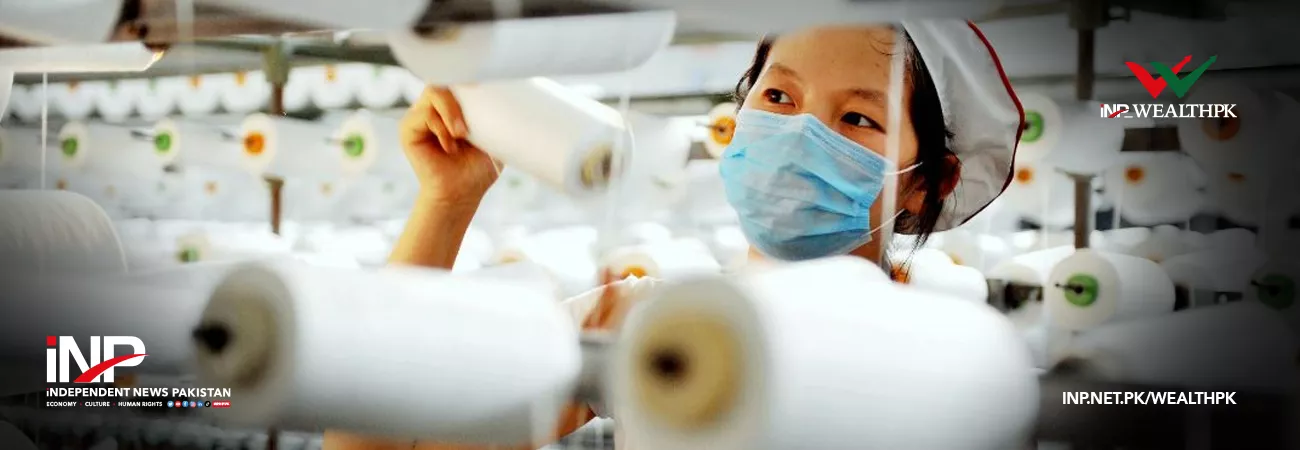INP-WealthPk
Raza Khan
Pakistani textile producers have called for joint ventures with Chinese companies to improve efficiency and productivity of the sector. Rafiq Godail, a textile exporter, told WealthPK that joint ventures with Chinese companies can help reduce business cost as well as creating brands. “Cooperation with Chinese textile sector will improve skills of Pakistani factory workers and supervisors,” Godail said. He said that Pakistani textile exporters also need to learn about grabbing larger market share by using best marketing practices.“Chinese textile entrepreneurs can help Pakistani industrialists in marketing products to various regions of the world,” he added.
The exporter said that energy infrastructure for the textile sector in Pakistan is less efficient and expensive. “We also need to improve our energy supply system for the textile industry, and China can better assist in this regard,” he said. He added that weak industrial infrastructure in Pakistan was also a problem.“Lack of coordination among various production chains, energy issues, and outdated infrastructure are also hampering production,” Godail said. He said that Pakistan’s textile sector is running below its actual capacity due to various reasons. With the help of the Chinese side, closed textile production units can be made functional following better management practices.
Muhammad Amin Nathani, Chairman of the Combined Textiles Group, said Pakistan is lacking value-addition in textile manufacturing.“China has better expertise in the textile sector. Joint ventures with Chinese companies will help in value-addition, technology advancement, and skill development,”, Nathani said. He said that Chinese textile companies should invest in special economic zones (SEZs) established under the China-Pakistan Economic Corridor (CPEC). Nathani was of the view that Chinese textile products are competitive due to better management of labour and efficient use of cheap energy. “We need to learn these management skills,” he added.
The chairman of Combined Textiles Group said that China is already playing an important role in Pakistan’s textile industry as now all the metal items are imported from China, particularly the advanced production machines. Nathani said that Chinese textile producers know how to survive and manage the business during the financial crisis and market breakdown. According to China Chamber of Commerce for Import and Export of Textiles (CCCT), China is also interested in strengthening investment in Pakistan’s textile and garment industry.
CCCT Vice President Zhang Xian in a statement called for increased Sino-Pak cooperation in the textile industry. He said the combination of strengths and weaknesses between the two countries’ textile industries presents opportunities for deeper cooperation. “China is willing to strengthen investment cooperation with Pakistan in the textile and garment industry,” Zhang said, adding that collaboration and competition coexist for the textile industry in both countries.
Textile exports are the major portion of Pakistan’s overall exports, and the textile sector hosts over 50% of the industrial workforce in Pakistan. Textile exports in 2021-22 accounted for 60.92% of the country’s total exports of $31.76 billion.According to Textiles and Apparel Policy 2020-25, the textile exports target for the current year has been set at $25 billion.
Credit: Independent News Pakistan-WealthPk




